This article was co-authored by Rebecca Ward, LMFT, SEP, PCC, MA. Rebecca A. Ward, LMFT, SEP, PCC is the Founder of the Iris Institute, a San Francisco, California-based business focusing on using somatic expertise to teach individuals and groups the skills to deal with dilemmas using interventions, including her own Original Blueprint® method. Ms. Ward specializes in treating stress, anxiety, depression, and trauma. She is a Licensed Marriage and Family Therapist (LMFT), a Somatic Experiencing® Practitioner (SEP), and a Professional Certified Coach (PCC) accredited by the International Coach Federation (ICF). Rebecca holds an MA in Clinical Mental Health Counseling from Marymount University and an MA in Organizational Leadership from The George Washington University.
There are 11 references cited in this article, which can be found at the bottom of the page.
This article has been viewed 26,538 times.
You may feel like your anxiety is under control, then be blind-sided by a sudden onset of symptoms. If you’re not prepared for anxiety lapses you may fall into a relapse, which can leave you feeling helpless, guilty, and ashamed. It can be hard to pick yourself up from a relapse, yet keep in mind that you can learn from these experiences. Moving forward, it’s important that you know how to prevent relapses and seek treatment as necessary.
Steps
Coping with Your Symptoms
-
1Reduce your stressors. Think about what triggered your anxiety and aim to reduce that stress. Then, cut back on any outside stressors you’re experiencing as much as possible. Perhaps you moved, started university, broke up with a boyfriend or girlfriend, or started a new job. Stress can make you more vulnerable to experience anxiety.[1] Ask for help in managing tasks at work and at home and find alternatives to stressful activities.
- If you were triggered by stress from moving, take your time moving in. Don’t rush things and if tasks don’t get done right away, don’t sweat it. You can also ask for help.
- Find ways to anticipate stress and have a better way to respond, such as going on a walk, listening to music, or engaging in exercise.[2]
- Prevent stressors leading to another relapse. For more information, check out How to Deal With Stress.
-
2Deal with your specific symptoms. Narrow down your specific anxiety symptoms and address them one by one. For example, if you’ve begun to have panic attacks once again, take note of your physical symptoms (chest pains, sweating, palpitations, difficulty breathing) and how you feel (having a fear of losing control or feeling detached from reality). Recognize that these are symptoms of a panic attack, at that you are not actually dying or losing control.[3] Remind yourself that you are feeling anxious and that these panic attacks are part of that anxiety.
- If you’re having a panic attack or about to have a panic attack, find ways to calm your body (for example, by deep breathing or taking a walk) and your mind (by calming or slowing your thoughts).
Advertisement -
3Visit your therapist. If you’ve skipped appointments or stopped going to therapy, make a new appointment. Anxiety is often treated using cognitive behavior therapy (CBT), which addresses thoughts and behaviors that drive anxiety. Your therapist may help you identify and challenge your thoughts and irrational beliefs that contributed to the relapse.[4]
- Let your therapist know you relapsed and need help. If you feel like one approach isn’t working, let your therapist know so you can try something new. Ask how you can prevent future relapses, handle anxiety as it happens, and work through specific triggers.
- Other methods of dealing with anxiety include practicing mindfulness, meditation, deep breathing techniques, and yoga.[5]
- Deep breathing techniques involve practicing belly breathing or breathing from the diaphragm. Lie flat or sit up with your feet on the floor and inhale/exhale slowly feeling your belly moving up and down. This method of breathing will stimulate the parasympathetic nervous system and help relax you. [6]
-
4Discuss your medications. If you’re not on medications, consider talking to a psychiatrist about intervention. If you’re currently on medications, make an appointment with your prescriber and discuss adjusting your dose. Your prescriber may change your dose or switch you to a new medication. Find a medication that helps you manage your symptoms effectively.
- For long-term medication, SSRI medication is often recommended as a safe form of treatment. SSRI’s are used to treat generalized anxiety disorder (GAD), obsessive-compulsive disorder (OCD), panic disorder, social anxiety disorder, and post traumatic stress disorder.[7]
- For more information, check out How to Get Anxiety Medication.
-
5Use your support system. Don’t be afraid to reach out for help. By isolating yourself or cutting people off, you increase your risk of experiencing anxiety. Instead, reach out to people in your life you know love and support you. Share your worries with someone you trust. Make a point to see friends, phone your family, and engage in social activities.[8]
- Join a self-help or support group with other people who also struggle with anxiety. For more information, check out How to Join an Anxiety Disorder Support Group.
Moving Forward
-
1Realize you can get back on track. You may feel overwhelmed with feelings of guilt, shame, or embarrassment after relapsing. Don’t let these feelings convince you that you cannot get back on track or recover from anxiety. While you may have gotten off track, recognize that you have (or can build) skills that can help you cope with anxiety, potentially with the help of a professional therapist.[9]
- Don’t give up hope or feel like all is lost. You can get things back together.
- Say to yourself, “I can get through this. All is not lost.”
-
2Examine your thoughts. Think back to what thoughts were going through your head before the relapse. What were you thinking? Were they positive or negative thoughts? How did your thoughts influence your feelings and behavior? Think about how your thoughts influenced the relapse.[10]
- If you notice you’re engaging in negative thinking, take note of the negative thoughts, and replace them with more positive thoughts. Instead of thinking, “I can’t do this, I’m going to give up,” say, “This is difficult, but I will keep trying. I can always ask for help.”
- Have positive thoughts that you can use when faced with negative thoughts. For example, say to yourself, “I can handle this” or “I am strong and willing to fight this.”
- For more information, check out How to Eradicate and Stop Negative Thoughts.
-
3Reflect on your behaviors. Did your behavior change with feelings of anxiety? Perhaps you began to withdraw from social activities or friends. Or maybe you began to avoid situations, events, or people. Think about what your behavior was like prior to the relapse, and if there were any warning signs that you could relapse.
- If you notice yourself withdrawing or avoiding, plug back in. Do activities you enjoy with people you love. Engage in hobbies regularly, or find a new hobby you think you may enjoy. Try painting, bike riding, or baking.
-
4Be kind to yourself. There’s no need to beat yourself up or put yourself down because you relapsed. This doesn’t help you recover. Remind yourself that lapses are normal, yet they don’t have to become relapses. It’s okay to struggle, it’s how you respond to the struggle that counts. When you do lapse, learn from the lapse and move on.[11]
- Remind yourself that you can overcome lapses by practicing your skills and not dwelling on your mistakes.
- If you start to feel bad, say to yourself, “I am doing the best I can. Even though I struggle, I work hard to get better.”
Preventing Relapses
-
1Watch for warning signs. You may begin to pick up on certain warning signs of relapse with anxiety. For example, your sleeping patterns may change or you may notice fluctuations in your mood. You may notice an increase in negative thoughts and a lack of motivation. Learn your warning signs by reflecting on past experiences or observing increases in anxiety in your day-to-day life.[12]
- You may want to journal your moods and anxiety levels. That way, you can reflect on specific triggers and moods that contribute to anxiety relapse. Check out How to Manage Anxiety with Journaling.
- You may have triggers that lead to anxiety. These may include breaking up after a long-term close relationship or moving away to a new place.
-
2Prepare for high-risk situations. Identify situations that may trigger your anxiety and prepare for them ahead of time. For example, if you fear crowds, recognize that your work conference may involve lots of people. A high-risk situation may include an important situation that could go wrong (like failing a test) or when things feel out of your control (like when travel plans get delayed). Have ways to cope with unexpected stress.[13]
- Some people use relaxation as a way to cope with anxiety and unexpected stress. You can practice deep breathing, relaxing yoga, and visualization. Find time to practice relaxation daily so that stress doesn’t add up.[14]
-
3Remember your skills. If you’ve gone through treatment with a therapist, you have skills to use when you feel anxious. Even if you lapse, you cannot unlearn the skills you’ve gained! There’s no such thing as being back at square one. Perhaps you’ve forgotten or gone through a weak spot. Yet, remember the skills you learned in therapy and remind yourself that you do have ways to push back.[15]
- Go back and review any notes, homework, or skills you’ve learned.
Expert Q&A
-
QuestionHow do you deal with an anxiety relapse as it's happening?
 Rebecca Ward, LMFT, SEP, PCC, MARebecca A. Ward, LMFT, SEP, PCC is the Founder of the Iris Institute, a San Francisco, California-based business focusing on using somatic expertise to teach individuals and groups the skills to deal with dilemmas using interventions, including her own Original Blueprint® method. Ms. Ward specializes in treating stress, anxiety, depression, and trauma. She is a Licensed Marriage and Family Therapist (LMFT), a Somatic Experiencing® Practitioner (SEP), and a Professional Certified Coach (PCC) accredited by the International Coach Federation (ICF). Rebecca holds an MA in Clinical Mental Health Counseling from Marymount University and an MA in Organizational Leadership from The George Washington University.
Rebecca Ward, LMFT, SEP, PCC, MARebecca A. Ward, LMFT, SEP, PCC is the Founder of the Iris Institute, a San Francisco, California-based business focusing on using somatic expertise to teach individuals and groups the skills to deal with dilemmas using interventions, including her own Original Blueprint® method. Ms. Ward specializes in treating stress, anxiety, depression, and trauma. She is a Licensed Marriage and Family Therapist (LMFT), a Somatic Experiencing® Practitioner (SEP), and a Professional Certified Coach (PCC) accredited by the International Coach Federation (ICF). Rebecca holds an MA in Clinical Mental Health Counseling from Marymount University and an MA in Organizational Leadership from The George Washington University.
Licensed Therapist Place a hand over your heart and another hand on your belly. Focus your attention on the breathing inside your chest. This is a quick way to lower your stress. Take a minute and do three long, deep, in-breaths through your nose, track each breath as it moves into your chest and belly and out through your mouth. Keep your tongue relaxed while you do this. This is a great way to calm your body down.
Place a hand over your heart and another hand on your belly. Focus your attention on the breathing inside your chest. This is a quick way to lower your stress. Take a minute and do three long, deep, in-breaths through your nose, track each breath as it moves into your chest and belly and out through your mouth. Keep your tongue relaxed while you do this. This is a great way to calm your body down. -
QuestionHow do you relieve stress and anxiety?
 Rebecca Ward, LMFT, SEP, PCC, MARebecca A. Ward, LMFT, SEP, PCC is the Founder of the Iris Institute, a San Francisco, California-based business focusing on using somatic expertise to teach individuals and groups the skills to deal with dilemmas using interventions, including her own Original Blueprint® method. Ms. Ward specializes in treating stress, anxiety, depression, and trauma. She is a Licensed Marriage and Family Therapist (LMFT), a Somatic Experiencing® Practitioner (SEP), and a Professional Certified Coach (PCC) accredited by the International Coach Federation (ICF). Rebecca holds an MA in Clinical Mental Health Counseling from Marymount University and an MA in Organizational Leadership from The George Washington University.
Rebecca Ward, LMFT, SEP, PCC, MARebecca A. Ward, LMFT, SEP, PCC is the Founder of the Iris Institute, a San Francisco, California-based business focusing on using somatic expertise to teach individuals and groups the skills to deal with dilemmas using interventions, including her own Original Blueprint® method. Ms. Ward specializes in treating stress, anxiety, depression, and trauma. She is a Licensed Marriage and Family Therapist (LMFT), a Somatic Experiencing® Practitioner (SEP), and a Professional Certified Coach (PCC) accredited by the International Coach Federation (ICF). Rebecca holds an MA in Clinical Mental Health Counseling from Marymount University and an MA in Organizational Leadership from The George Washington University.
Licensed Therapist Incorporate stress relieving activities into your day. Good options include meditation, mindfulness, yoga, and deep breathing techniques.
Incorporate stress relieving activities into your day. Good options include meditation, mindfulness, yoga, and deep breathing techniques.
References
- ↑ https://www.mentalhealthfirstaid.org/external/2018/06/stress-vs-anxiety/
- ↑ http://www.helpguide.org/articles/stress/stress-management.htm
- ↑ https://adaa.org/understanding-anxiety/panic-disorder-agoraphobia/symptoms
- ↑ http://www.helpguide.org/articles/anxiety/anxiety-attacks-and-anxiety-disorders.htm#therapy
- ↑ Rebecca Ward, LMFT, SEP, PCC, MA. Licensed Therapist. Expert Interview. 29 May 2020.
- ↑ Rebecca Ward, LMFT, SEP, PCC, MA. Licensed Therapist. Expert Interview. 29 May 2020.
- ↑ http://www.helpguide.org/articles/anxiety/anxiety-medication.htm
- ↑ http://www.helpguide.org/articles/anxiety/anxiety-attacks-and-anxiety-disorders.htm#selfhelp
- ↑ https://www.anxietycanada.com/sites/default/files/RelapsePrevention.pdf
- ↑ https://www.anxietycanada.com/sites/default/files/RelapsePrevention.pdf
- ↑ psychcentral.com/blog/4-ways-to-be-kind-to-yourself-when-youre-anxious
- ↑ https://www.anxietycanada.com/sites/default/files/RelapsePrevention.pdf
- ↑ https://adaa.org/tips
- ↑ https://medicine.umich.edu/sites/default/files/content/downloads/Relaxation-Skills-for-Anxiety.pdf
- ↑ https://www.anxietycanada.com/sites/default/files/RelapsePrevention.pdf

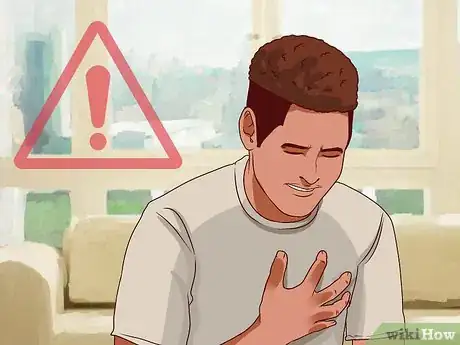
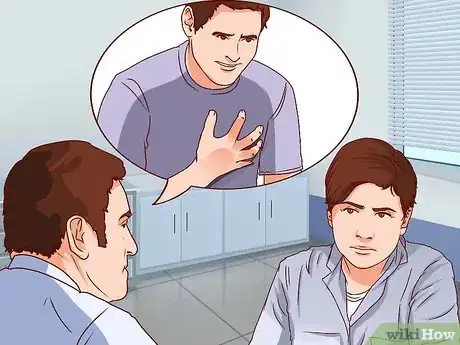


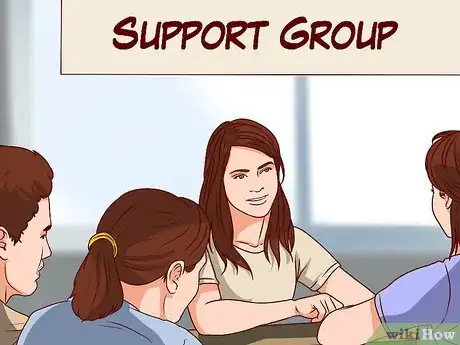

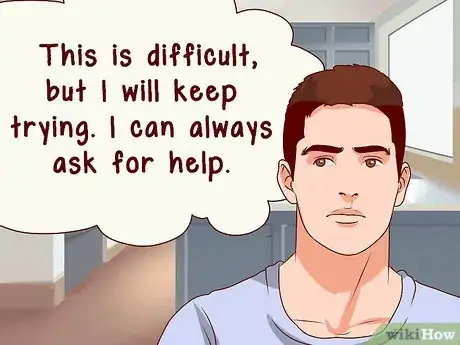
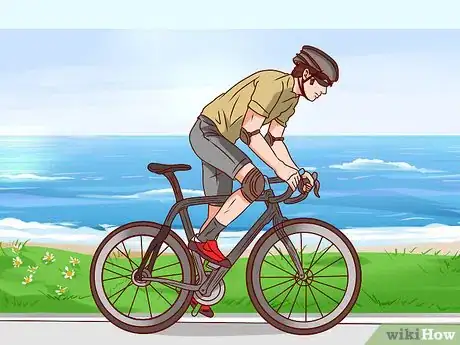
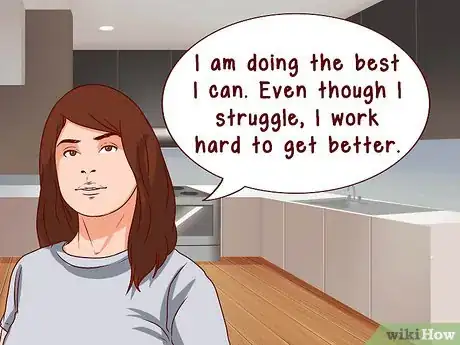
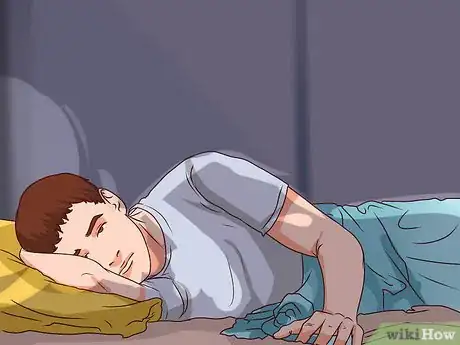



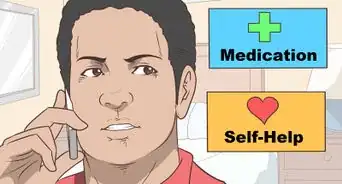

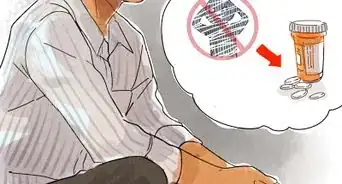




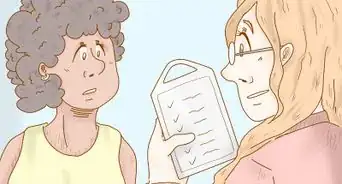
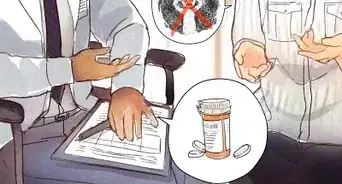
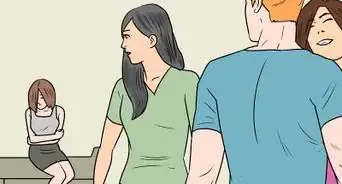










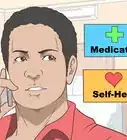

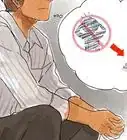



































Medical Disclaimer
The content of this article is not intended to be a substitute for professional medical advice, examination, diagnosis, or treatment. You should always contact your doctor or other qualified healthcare professional before starting, changing, or stopping any kind of health treatment.
Read More...